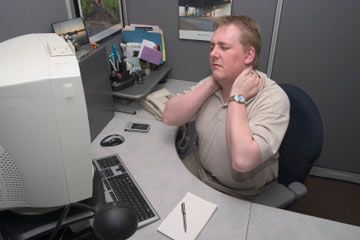Ask people where they were when the Twin Towers fell on September 11, 2001, and it's a good bet that they'll remember without hesitating. They may even recall specific details about the day, such as exactly what they were doing just before they saw the news reports of the terror attacks. This remarkable ability to conjure up even the smallest details surrounding a tragic or traumatic event is directly related to the intensity of the event itself. In other words, the more emotionally disturbing the experience is to us, the more likely we are to commit it to memory [source: Science Daily]. This is because memory and emotion are inextricably linked in the human brain.
But while people seem to easily remember tragic events and the seemingly insignificant details associated with them, many would be hard-pressed to recall the minutia of their happy times. For example, mothers often have trouble summoning the specifics of their children's birth, but are amazingly accurate in recounting the duration and intensity of the labor process. It begs the question, "Do we remember the bad times better than the good?" Before answering, it's helpful to know a bit about the process of memory formation and the factors that influence it.
Advertisement



